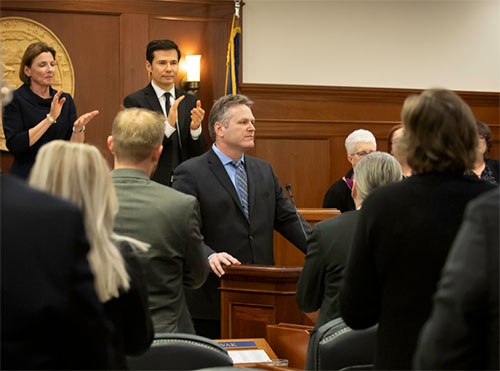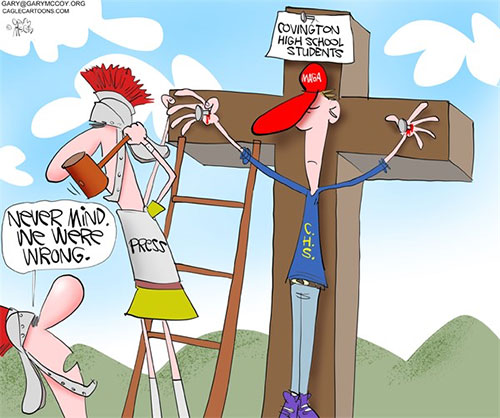







Weekly Specials
Online Shopping; Pickup or Delivery |
|













 Contact Contact 
 Webmail
Letters Webmail
Letters
 News Tips News Tips
 Copyright Info Copyright Info
 Archives Archives
Quick News
Search
 Alaska Alaska
 Ketchikan Ketchikan
 SE Alaska SE Alaska
Columns
- Articles
 Dave Kiffer Dave Kiffer
 Money Matters Money Matters
Historical
Ketchikan
 June Allen June Allen
 Dave
Kiffer Dave
Kiffer
 Louise
B. Harrington Louise
B. Harrington
Sports
 Ketchikan Links Ketchikan Links
Public Records
 FAA Accident Reports FAA Accident Reports
 NTSB
Accident Reports NTSB
Accident Reports
 Court Calendar Court Calendar
 Recent Filings & Case Dispositions Recent Filings & Case Dispositions
 Court Records Search Court Records Search
 Sex Offender Reg. Sex Offender Reg.
 Public Notices Public Notices
 Alaska Recall Alerts Alaska Recall Alerts
 Recalls.gov Recalls.gov
 AST Daily Dispatch AST Daily Dispatch
 KTN
Police Reports KTN
Police Reports
 Juneau Police Reports Juneau Police Reports
Weather,
Webcams
 Today's
Forecast Today's
Forecast
 KTN
Weather Data KTN
Weather Data
 AK
Weather Map AK
Weather Map
 AK Weathercams AK Weathercams
 AK Earthquakes AK Earthquakes

|
|

Tuesday PM
January 22, 2019

Governor Dunleavy Delivers State of State Speech
Front Page Feature Photo Courtesy Office of the Governor
|
|
Alaska: Governor Dunleavy Delivers State of State Speech By MARY KAUFFMAN - Tonight, Governor Michael J. Dunleavy outlined directly to Alaskans a series of commitments and priorities during his first State of the State address to a joint session of the Alaska Legislature in Juneau.
In his address the Governor said, "Things will be different; things will be very different. Together we are tasked with righting the wrongs that have broken the trust of the Alaska People. And I’ll work with all my energy, dedication, and ability to do exactly what I promised you I would do."
Dunleavy said no more of the tired old approaches: “We’re going to declare war on criminals. We’re going to get our spending in line with our revenue. We’re going to protect Alaskans’ PFDs. We’re going to grow our economy and put Alaskans to work. And we must restore public trust in government and elected officials.”
Dunleavy said he is Governor today because of the campaign promises he made to the people of Alaska on the issues most of us believe in. "I’m here to do exactly what I promised to do. What I told Alaskans I would do.”
PFD
Dunleavy said, "Alaskans’ PFDs should be paid in full using the law that has worked for decades, and the PFD should be protected in the Constitution, now and for the future."
In his address, Dunleavy mentioned that last week he unveiled two bills for the back-pay owed to Alaskans on their PFDs. Tonight he urged the legislature to act swiftly on those bills. He said, "Every penny of that PFD money due Alaskans is sitting in the Earnings Reserve Account, and is available for distribution."
"Let’s act now and put this issue behind us once and for all." said Dunleavy.
Budget
Next the Governor addressed the budget saying, "Alaskans believe our state budget process is a mess. There is simply no other way to describe it."
Dunleavy said it's a mess "because our government spending far exceeds the revenue we take in. Kicking the can down the road for years, wiping out billions from savings, and then taxing the PFD, all the while just hoping for another oil boom — it simply doesn’t work."
The days of creating a “wish list” budget, when anything and everything is just too important not to fund, and where politicians spend their time looking for ways for you to pay for it, Dunleavy said those days have got to be over. "We can no longer spend what we don’t have."
Dunleavy said his administration is preparing a budget that for the first time all Alaskans will be able to understand and trust. "No more games, no more shuffling numbers. Just an honest, straightforward look at where we are."
"While no one person is to blame, Dunleavy said, "Alaskans will quickly see that we’ve been spending wildly beyond our means for years. Our children and grandchildren deserve better."
In order to get a handle on the budget, Dunleavy said one of his first administrative orders was to centralize the budget-making functions of all departments under the Office of Management and Budget.
"My administration will be focused on the basic functions of government, while realigning programs and operations to eliminate duplication and prioritize each agency’s core mission," said Dunleavy.
"My first budget is going to be an honest budget, said Dunleavy. "As I promised the people, we must start from the standpoint that expenditures must equal revenue. We can’t go on forever using savings to plug the budget gap."
And to address the fiscal issues that have plagued Alaska for years, the Governor said we need a permanent fiscal plan, a plan that will put our state on solid footing for decades to come.
While not a new struggle for Alaska, the state struggled with this before when Alaska first became flush with oil money from Prudhoe Bay, and many were focused on spending as much as possible said Dunleavy.
However, the Governor said, there were some in the Legislature, even back then, who were concerned about where we were headed. At this point the Governor recognized Dick Randolph from Fairbanks. Randolph is a former teacher, an insurance agent and a retired legislator, who the Governor said in the 1970s and early 1980s had the foresight to understand that the People of Alaska, through constitutional amendments and the initative process, could help control government spending and develop a sustainable fiscal plan.
Governor Dunleavy said he will be introducing three constitutional amendments, which will be the foundation of a permanent fiscal plan. - More...
Tuesday PM - January 22, 2019 |
Analysis: Shutdown's economic impact is a forceful reminder of why government matters By ANDREW HOFFMAN & ELLEN HUGHES-CROMWICK - As the United States endures the longest shutdown in its history, Americans are getting a taste of life without government.
The absence of some services are clearly visible, such as a buildup of trash at national parks or longer lines at airport security checkpoints. Others, like those felt primarily by businesses, are less noticeable but arguably more important, such as an inability to get a small business loan or limited service from the IRS, Securities and Exchange Commission and other key agencies.
Collectively they show that government matters. But once the shutdown ends and the memories of the pain and discomfort it caused begin to fade, the visceral reminder Americans got of this message may fade with it.
As scholars of business and policy, we believe it’s essential that Americans not forget. In fact, the shutdown provides a good opportunity to reflect on the government’s vital role in the free market and find a better balance between regulation and business.
How the shutdown is affecting business
The partial shutdown, in its fifth week, has left about 800,000 government employees either furloughed or working without pay, affecting more than 10 agencies.
This has resulted in the slowing or halting of a great deal of activity, including food safety inspections, initial public offerings on the stock market and the approval of new craft beers.
And these costs are felt by citizens as the risks grow to their food, the environment and other things. Economists warn that long-term impacts could also undermine confidence as businesses, consumers and investors lose faith in political leaders’ ability to make constructive policies.
The White House’s own economists estimate that every week of shutdown reduces growth by 0.13 percentage point, meaning the economy has already taken a hit of half a percent. If it goes for another week, total costs could exceed US$6 billion, which is more than what the president is demanding for his border wall.
And yet Americans won’t even know the actual impact because many of the government workers whose job it is to collect and measure economic activity have been sent home. - More...
Tuesday PM - January 22, 2019
Analysis: Trump's reference to Wounded Knee evokes the dark history of suppression of indigenous religions By ROSALYN LA PIER - President Trump evoked the Wounded Knee massacre in a recent tweet. He was reacting to an Instagram video that Sen. Elizabeth Warren posted on New Year’s Eve.
There’s been considerable criticism of the president’s inaccurate portrayal of Native American history, including from members of his own party. Two Republican senators from South Dakota, Mike Rounds and John Thune, spoke out against the tweet.
Wounded Knee is among the worst massacres in Native American history. It was also one of the most violent examples of the repression of indigenous religion in American history.
Religious suppression
Religion historian Tisa Wenger explains that before the 20th century, many Americans believed that “indigenous practices were by definition savage, superstitious and coercive.” They did not consider them to be religion.
In part because of this belief, the U.S. government decided not to recognize Native Americans as citizens of sovereign governments in the 19th century, but as colonial subjects. In 1883, the Department of Interior enacted the first “Indian Religious Crimes Code” making the practice of Native American religions illegal. These codes remained in place until 1934.
In response, Wenger writes, some Native American groups tried to convince government agents that their gatherings were places of “prayer and worship” similar to Christian churches. Others claimed that their gathering were “social,” not religious.
But this kind of masking of religious practices did not stop the U.S. government from using violence to suppress these Native American ceremonies. - More...
Tuesday PM - January 22, 2019
|
Historical Analysis: Foreign interference in US elections dates back decades; Nazis and communists tried it too By BRADLEY W. HART - Americans have spent the last 18 months wondering about Russian influence in the 2016 presidential election.
Charges have already been filed against 12 Russian intelligence officers for interfering with the 2016 presidential campaign, as special counsel Robert Mueller continues investigating the extent of the Trump campaign’s links to Russia.
A Senate report concluded that the Russians’ interference was aimed at influencing the outcome of the election.
If true, the president would not be the first U.S. politician that foreign powers tried to help.
In fact, two campaigns, in 1940 and 1960, featured bold attempts by hostile foreign powers to put their preferred candidates in the Oval Office.
While neither was successful, both highlight a vulnerability in the American political system that, for the first time, has become the subject of major public discussion.
1940: Nazis try to beat FDR
As I point out in my book “Hitler’s American Friends: The Third Reich’s Supporters in the United States,” American politics was deeply divided in 1940. The key debate was over war and peace, in this case the Second World War raging in Europe.
American public opinion was split between those who wanted to help the flagging Allies – and potentially enter the war – and a bipartisan coalition of non-interventionists and isolationists. The Roosevelt administration was seen as interventionist; its opponents had their power base on Capitol Hill.
The 1940 election took place against this backdrop. For months, President Franklin Roosevelt refused to answer questions about whether he would run for a third term in office.
No one knew who might seize the Democratic nomination if FDR choose not to run. There was also no clear candidate who could command national support on the GOP side.
The Nazis concluded that if Roosevelt could be replaced by a non-interventionist, the prospects of U.S. involvement in the European war would be greatly reduced.
So Berlin enlisted the support of a sympathetic, well-connected American. William Rhodes Davis was an oilman with a sketchy business past who, in the late 1930s, made a fortune by selling cut-rate Mexican oil to Hitler’s government. Simultaneously, Davis cultivated connections inside the Democratic Party, making a sizable donation to its 1936 election efforts.
When war broke out in Europe in 1939, Davis’ fortunes changed as the British imposed a blockade on German ports. He believed the only way to save his business was by personally making peace in Europe by negotiating a deal between the warring parties himself. Calling on his Democratic Party connections, Davis approached the White House with his plan for peace. FDR was sensibly skeptical.
Undeterred, Davis traveled to Germany, met with leaders of the Third Reich including Hermann Göring, and returned with the vague outlines of a deal that would have given Germany territorial gains in exchange for Roosevelt mediating a peace treaty.
Roosevelt refused to even meet with Davis upon his return, worried that he might be compromised and acting as a Nazi agent.
In fact, there was a secret aspect to Davis’ mission to Germany.
While there, he talked to Göring about the possibility of a non-interventionist winning the 1940 election. Davis even had the perfect candidate in mind: labor leader John L. Lewis, the controversial head of the Congress of Industrial Organizations, or CIO, who was a non-interventionist and a staunch opponent of the president.
Göring evidently allocated US$5 million to support the plan and stashed it at the German embassy in Washington D.C. for Davis’ use. - More...
Tuesday PM - January 22, 2019 |
CHRISTINE FLOWERS: Toxic Masculinity is a Myth - Last week, shaving-supply company Gillette released a controversial ad reminding guys of their "toxic masculinity," a phrase that has popped up to describe the supposed hazards of typically male behavior.
The ad begins by showing men engaging in Neanderthal-like activities including cat-calling, bullying, mansplaining, and using sexual innuendo when talking to women. Then, in a cloyingly obvious nod to #MeToo, the ad suggests that men can "get closer to [their] best" by being empathetic to women's needs and intervening when their pals engage in harassing behavior.
The "short film," as the razor giant calls it, quickly went viral. As of this writing more than 16 million people had viewed it on YouTube. While some have praised Gillette for challenging behavioral norms, others are threatening to boycott the company for stereotyping all men as misogynists and bullies.
The message I see in this ad is that men need to stop being men and that men's default position is bestial. I think that's outrageous.
I am not surprised that ad executives have fallen prey to the "men are bad" narrative, which is the extreme and ridiculous response to the equally extreme and ridiculous "women are victims" narrative that has become conventional wisdom in the wake of the sexual abuse accusations against Harvey Weinstein. Madison Avenue has about as much of a social conscience as Wall Street.
Unfortunately, the executives at Gillette aren't the only ones who think that men are a problem.
This month, the American Psychological Association (APA) released its first-ever guidelines designed to help psychologists work with men and boys to address the so-called epidemic of "toxic masculinity." According to the APA's research, "traditional masculinity - marked by stoicism, competitiveness, dominance, and aggression - is, on the whole, harmful."
I believe this hostility toward men is dangerous, but I also know that it's nothing new. As the second and third wave feminists gained momentum over the last 50 or so years, they bolstered a narrative that has become accepted wisdom: Men, the patriarchy, and masculinity in general have been the source of women's suffering. Women are taught to blame men for everything bad that has ever happened to them. The #MeToo movement is just the next generation of this. - More...
Tuesday PM - January 22, 2019 |

Political Cartoon: Media Crucifies ProLifers
By Gary McCoy ©2019, Shiloh, IL
Distributed to paid subscribers for publication by Cagle Cartoons, Inc.
 |
Re: Edwards' Mess By
Gigi Pilcher - I agree 100% with John Herrington's Letter regarding prosecution of each and every adult employed by the KGDSB who knew (first hand) about the sexual assault/sexual abuse allegation.
I am stunned the the KGDSB had to pay money out regarding if there was wrong doing regarding the administration's FAILURE to report everyone of the allegations to law enforcement and OCS ( Office of Children's Services).
It doesn't take a brain surgeon or even a lawyer to know that under Alaska Law, which supersedes any policy and procedure that teachers, school administrators, and other school personnel are MANDATED reporters under Alaska law.
From the mid-1980's through 2004, Women In Safe Homes provided training at in services on this subject as well as providing personal safety to students K through 12th grade. Some of your readers might remember the programs that WISH provided.
Part of the personal safety taught was for a student to identify a safe person who they could go to and tell to get help. Why the KGBSD discountinued Personal Safety had to do with a change in administration. The same administration that violated state law at least 6 times.
Shame on us, every adult who votes in this community for allowing something as important as the safety of our children in school to be ignored. - More...
Friday PM - January 18, 2019
 |
Vote for Donna Frank By
Kathleen Yarr - I have known Donna Frank since 1987. I hired her to work on the KIC Welfare Reform program in 1994 when I was the Director of Social Services.
Donna was an excellent employee. She was trustworthy, flexible, curious, ethical, a good listener, open to feedback and suggestions, eager to try new approaches to solve problems and to improve policies and the KIC system, and fun to work with! She was a true team player, a quick study and honest.
Donna also had excellent work habits and got along well with the other staff. She worked her way up quickly and later held executive positions both at KIC as well as at Cape Fox. During her employment in KIC Finance, she oversaw grants and audits and earned her B.A. in Business Administration with an emphasis in Finance. At Cape Fox Corporation she became a Certified Fraud Examiner. Donna also has an acute understanding of Human Resources, and years of experience in organizational management and leadership. - More...
Friday PM - January 18, 2019
 |
The Edwards' Mess By
John Harrington - The Ketchikan School Board investigation into the Edwards' mess has been completed. The Executive Summary is available. The School Board is busy preparing for alterations in their policies. Great. - More...
Monday PM - January 14, 2019
RE: Abolish Salmon Hatcheries? By
Teri Dawe - I read the letter with interest. This has been a complex ongoing largely unrecognized problem for an extremely long time. - More...
Monday PM - January 14, 2019
Read the Executive Summary By
Margaret Cloud - The report regarding Doug Edwards is available on-line. I encourage people to read the entire report. The school district was aware of issues since 2013. - More...
Monday PM - January 14, 2019
Systemic betrayal of public trust By
Mark O’Brien - Concerning the Edwards abuse case, there appears to have been a systemic betrayal of public trust within the Ketchikan Gateway School District. During this past Wednesday’s meeting School Board member Diane Gubatayao was the only board member to step up and vote to not accept Robert Boyle’s letter of resignation. His resignation letter should have been rejected and the school board should have fired him instead. That collective vote would have been the first step in restoring faith in this body’s decisions regarding student safety and public trust. - More...
Friday AM - January 11, 2019
 |
“MR. GORBACHEV, TEAR DOWN THIS WALL” By
David G Hanger - “Thus, by the acts of a dismissed emissary, a disappointed president, and a divided Senate, the United States acquired California and the Southwest. This gigantic step in the growth of the American republic was not taken with enthusiasm by either president or Congress, but resulted from the fact that the elements in opposition could find no viable alternative and no basis on which they could combine. It was an ironic triumph for ‘Manifest Destiny,’ an ominous fulfillment for the impulses of American nationalism. It reflected a sinister dual quality in this nationalism, for at the same time when national forces, in the fullness of a very genuine vigor, were achieving an external triumph, the very triumph itself was subjecting their nationalism to internal stresses which, within thirteen years, would bring the nation to a supreme crisis.” (The Impending Crisis: America Before the Civil War 1848-1861 by Professor David M. Potter, 1910-1971, page 6.) - More...
Friday AM - January 11, 2019
 |
Trump's First Two Years By
Donald Moskowitz - As an Independent I provide the following evaluation of Trump's first two years in office. - More...
Friday AM - January 11, 2019
RE: A Progressive Scam By Wiley Brooks - According to Stephan Eldridge, he’s a retired authority on our federal income tax system. Whatever he is, he’s a gadfly who evidently has nothing else to do except spend his days trolling for information published on the FairTax. Obviously, he’s a big fan of our complex, unfair, burdensome and corrupt income tax system. - More...
Friday AM - January 11, 2019
 Webmail your letter or Webmail your letter or
 Email Your Letter To: editor@sitnews.us Email Your Letter To: editor@sitnews.us
|
Articles &
photographs that appear in SitNews may be protected by copyright
and may not be reprinted or redistributed without written permission
from and payment of required fees to the proper sources.
E-mail your news &
photos to editor@sitnews.us
Photographers choosing to submit photographs for publication to SitNews are in doing so, granting their permission for publication and for archiving. SitNews does not sell photographs. All requests for purchasing a photograph will be emailed to the photographer.
|
|

















The Local Paper is
available online.
Click here for this week's printed edition (PDF)

|
|


![]() Contact
Contact ![]()
![]() Webmail
Letters
Webmail
Letters![]()
![]() News Tips
News Tips![]()
![]() Copyright Info
Copyright Info![]() Archives
Archives![]() Alaska
Alaska![]() Ketchikan
Ketchikan![]() SE Alaska
SE Alaska![]() Dave Kiffer
Dave Kiffer![]() Money Matters
Money Matters ![]() June Allen
June Allen![]() Dave
Kiffer
Dave
Kiffer![]() Louise
B. Harrington
Louise
B. Harrington ![]() Ketchikan Links
Ketchikan Links![]() FAA Accident Reports
FAA Accident Reports ![]() NTSB
Accident Reports
NTSB
Accident Reports![]() Court Calendar
Court Calendar![]() Recent Filings & Case Dispositions
Recent Filings & Case Dispositions ![]() Court Records Search
Court Records Search![]() Sex Offender Reg.
Sex Offender Reg.![]() Public Notices
Public Notices![]() Alaska Recall Alerts
Alaska Recall Alerts![]() Recalls.gov
Recalls.gov![]() AST Daily Dispatch
AST Daily Dispatch![]() KTN
Police Reports
KTN
Police Reports![]() Juneau Police Reports
Juneau Police Reports ![]() Today's
Forecast
Today's
Forecast![]() KTN
Weather Data
KTN
Weather Data![]() AK
Weather Map
AK
Weather Map![]() AK Weathercams
AK Weathercams![]() AK Earthquakes
AK Earthquakes








































